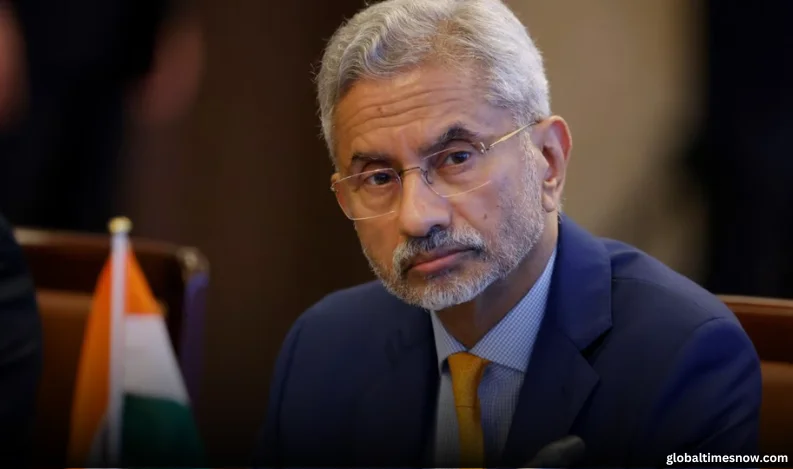New Delhi - External Affairs Minister S Jaishankar has issued a strong caution to Bangladesh, urging its interim leadership to reconsider its stance towards India. Speaking at a public event, Jaishankar criticized Dhaka’s contradictory approach, wherein it seeks strong bilateral ties with India while simultaneously making unfounded allegations against New Delhi.
The remarks come shortly after Jaishankar’s meeting with Bangladesh’s Foreign Affairs Adviser, Touhid Hossain, in Muscat, where concerns over regional stability, minority rights, and diplomatic relations were discussed.
Jaishankar’s Stern Message to Bangladesh
Highlighting India’s growing concern over Bangladesh’s recent political rhetoric, Jaishankar asserted that Dhaka must “make up its mind” about the direction it wants its relationship with India to take.
"If every day someone from their interim government stands up and blames India for everything—some of those claims being completely ridiculous—then how do they expect to maintain good relations? You cannot wake up every morning and accuse your neighbor while also claiming to seek better ties," he remarked.
Jaishankar emphasized the long-standing historical relationship between India and Bangladesh, particularly recalling India’s instrumental role in Bangladesh’s liberation in 1971.
"We have a special history with Bangladesh, but the current trend of hostile messaging is troubling. They need to decide what kind of relationship they truly want with us," he added.
Rising Concerns Over Internal Unrest and Regional Stability
Jaishankar further pointed out that India is deeply troubled by recent communal tensions in Bangladesh, particularly attacks on minorities.
"The spate of attacks on minorities is a major concern for India. This situation naturally influences our diplomatic approach, and we have voiced our concerns accordingly," he said.
Addressing Bangladesh’s domestic politics, Jaishankar noted that while every country has the right to govern as it sees fit, its approach towards India must be clear and consistent.
"They have their own political dynamics, which we may or may not agree with. However, as a close neighbor, Bangladesh must decide on the tone and direction of its outlook towards India," he emphasized.
India’s Call for Stability Amid Rising Regional Tensions
Jaishankar reaffirmed that India has conveyed a strong diplomatic message to Bangladesh, urging it to “de-escalate tensions” and refrain from fostering hostility.
"The Government of India has sent a clear message that we want stability and constructive dialogue. However, the constant anti-India rhetoric from Bangladesh’s leadership is not acceptable," he stated.
During his meeting with Touhid Hossain, Jaishankar also warned against normalizing terrorism, amid concerns over Pakistan’s increasing influence in Bangladesh.
"Terrorism cannot be normalized, and it is important for Bangladesh to acknowledge this reality. We will not tolerate any attempts to justify or downplay the threats that impact regional peace," he asserted.
SAARC and Regional Diplomacy
In response to a query about whether SAARC (South Asian Association for Regional Cooperation) was discussed in his talks with Hossain, the Ministry of External Affairs confirmed that the topic was raised by Bangladesh.
"The matter of SAARC was brought up by the Bangladesh delegation. However, it was acknowledged that everyone in South Asia knows which country and what activities are obstructing SAARC’s progress. The External Affairs Minister made it clear that Bangladesh must not contribute to the normalization of terrorism," a ministry spokesperson stated.
Jaishankar’s latest remarks reflect India’s growing impatience with Bangladesh’s diplomatic inconsistencies, especially following the ouster of former Prime Minister Sheikh Hasina in August 2024. His meeting with Hossain in Muscat marks the second high-level diplomatic interaction between the two nations in recent months, following their previous engagement at the UN General Assembly in New York last September.
As regional tensions escalate, the ball is now in Bangladesh’s court to clarify its strategic intentions and determine whether it seeks to mend ties with India or further strain the historic partnership.























